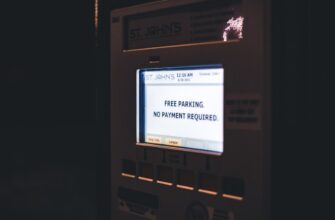As NFT trading surges in popularity, UK investors must navigate complex tax rules or face severe penalties. Selling digital art, collectibles, or virtual land for profit triggers Capital Gains Tax obligations under HMRC regulations. This guide breaks down NFT tax liabilities, penalty risks, and compliance strategies to keep your crypto investments secure.
How NFT Profits Are Taxed in the UK
HMRC treats NFTs as taxable assets, not currency. Profits from sales fall under Capital Gains Tax (CGT) if you’re an individual investor. Key considerations:
- Tax-Free Allowance: £6,000 annual CGT exemption (2023/24), reducing to £3,000 in April 2024
- Tax Rates: 10% for basic-rate taxpayers, 20% for higher/additional-rate taxpayers
- Business vs Investment: Frequent traders may owe Income Tax (up to 45%) instead of CGT
Calculating Your NFT Tax Liability
Accurate reporting requires precise profit calculations:
- Track acquisition costs (purchase price + gas fees)
- Deduct allowable expenses (platform commissions, enhancement costs)
- Offset losses against gains in the same tax year
- Apply the Annual Exempt Amount before finalizing taxable gains
Example: Buying an NFT for £5,000 and selling for £15,000 creates a £10,000 gain. After £6,000 exemption, £4,000 is taxable.
Penalties for Non-Compliance with NFT Taxes
HMRC imposes escalating penalties for errors or late filings:
- Late Tax Returns: £100 immediate fine + £10/day after 3 months
- Unpaid Tax: 5% surcharge at 30 days overdue, another 5% at 6 and 12 months
- Inaccurate Reporting: Up to 30% penalty for careless errors, 70-100% for deliberate evasion
- Criminal Prosecution: For severe cases involving £25,000+ in tax avoidance
Penalties compound with interest (currently 7.75%), making early resolution critical.
Avoiding NFT Tax Penalties: 5 Proactive Strategies
- Maintain transaction logs with timestamps, wallet addresses, and GBP values
- Use crypto tax software to automate gain/loss calculations
- File Self Assessment by January 31 following the tax year end
- Pay owed taxes by January 31 to avoid late fees
- Disclose errors voluntarily to reduce penalties by up to 30%
NFT Tax FAQs: Your Top Questions Answered
Q: Do I pay tax if I transfer NFTs between my own wallets?
A: No tax applies for personal transfers. Tax events only occur when selling or swapping for other assets.
Q: How are NFT staking rewards taxed?
A: Rewards count as miscellaneous income, taxable at your Income Tax rate when converted to fiat or used.
Q: Can I deduct NFT investment losses?
A: Yes, capital losses offset gains in the same year or carry forward indefinitely. Report losses on your Self Assessment.
Q: What if I bought NFTs before moving to the UK?
A> Only gains accrued after becoming a UK tax resident are taxable. Maintain proof of acquisition dates and values.
Always consult a crypto-specialized accountant for complex cases. HMRC’s Cryptoassets Manual confirms NFTs follow standard CGT rules, but evolving regulations require vigilance. Proper compliance protects your investments from costly penalties while legitimizing your NFT portfolio.








